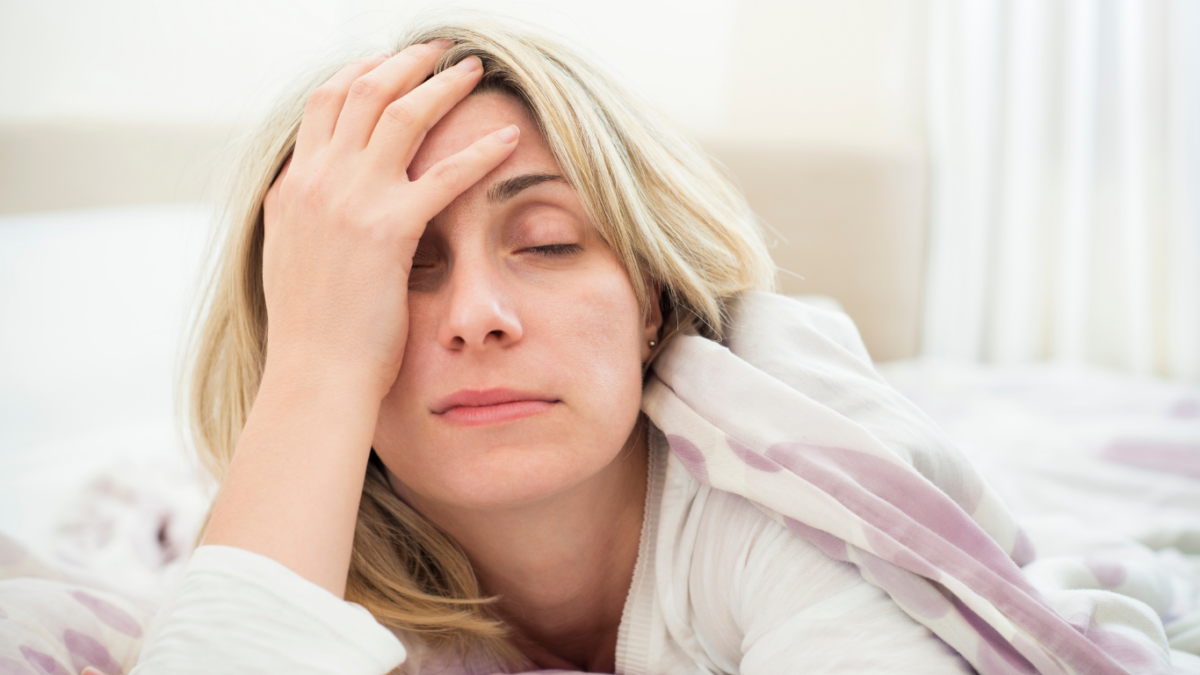Is Menopause Keeping You Awake?

Let’s Talk About How to Get a Good Night’s Sleep
Hey friends! We’re about to dive into an ocean that is as much fascinating as it is filled with waves of warmth and cold – yep, we’re talking menopause. More specifically, we’re going to explore how it can impact your sleep and share some top-notch tips to help you grab those much-needed Zs.
If you’re here, I bet you’ve been through a lot: mood swings, hot flashes, and let’s not even start about those moments when you feel like you’re hosting a sauna party, all by yourself! (Doesn’t it sound fun?) Well, menopause is a natural stage of life, but that doesn’t mean it’s a walk in the park.
We’re with you in this, and while we can’t stop the hormones from having their rave party, we can certainly help make your nights a little less sleepless.
The Intricate Dance Between Menopause and Sleep
Why on earth does menopause have to mess with your sleep? You might wonder. Well, it all comes down to the rollercoaster ride of hormones. When you hit menopause, your body slows down its production of estrogen and progesterone, hormones that, among other things, help you sleep. This can result in insomnia or other sleep disruptions.
Hot flashes are also a common factor. Imagine being sound asleep when a sudden rush of heat sweeps over you like a mini heatwave. It can leave you sweaty, uncomfortable, and wide awake in the dead of night. Not the kind of night party anyone would enjoy, huh?
So, How Do We Tame This Wild Menopause Beast for a Good Night’s Sleep?
- Create a sleep-friendly environment: We’re talking cool, dark, and quiet. These three elements can significantly enhance the quality of your sleep. Consider investing in blackout curtains and a fan or air conditioner. Earplugs or a white noise machine might be helpful if you live in a noisy neighborhood.
- Establish a consistent sleep routine: Try to go to bed and wake up at the same time every day, even on weekends. This consistency can help regulate your body’s internal clock and make falling asleep easier.
- Mind your diet: Avoid large meals, caffeine, and alcohol close to bedtime. These can disrupt your sleep cycle and trigger hot flashes. Try to drink enough water throughout the day but limit fluids a few hours before bed to avoid frequent trips to the bathroom.
- Exercise regularly: Regular physical activity can help manage symptoms of menopause, including sleep problems. But remember, timing is crucial. Try to finish working out at least three hours before bedtime, as exercising too close to sleep time can keep you awake.
- Relax before bed: Make relaxation part of your bedtime routine. This could involve reading a book, listening to calming music, or practicing mindfulness meditation. Relaxation techniques can help you transition to sleep more smoothly.
- Consider professional help: If your sleep disturbances are severe and persistent, it might be time to seek professional help. Sleep specialists, therapists, and menopause experts can offer effective solutions tailored to your needs.
We’ve also asked other women who are currently in this stage, and below are the common strategies they say they use to tackle menopause-induced sleep problems:
- Hormone Replacement Therapy (HRT): This is a medical solution and must be prescribed by a doctor. HRT helps to rebalance the body’s hormone levels and can alleviate many menopausal symptoms, including sleep disturbances. However, it does come with its own potential risks and side effects, so it’s not the right choice for everyone.
- Cooling products: Some women swear by products like cooling pillows, mattress toppers, and bed fans. There are also ‘cooling’ pajamas and sheets made from breathable fabrics that help to wick away sweat and keep you cooler.
- Natural remedies: Many women turn to natural remedies for help. For instance, some women find that adding soy products to their diet or taking herbal supplements like black cohosh, red clover, or valerian root can help reduce menopausal symptoms.
- Acupuncture: Some studies suggest that acupuncture can help reduce hot flashes in menopausal women and improve sleep.
- Cognitive-behavioral therapy (CBT): CBT can be particularly effective for insomnia. It involves learning new ways to think about and deal with the menopause symptoms that are keeping you awake at night.
- Yoga and Tai Chi: These gentle forms of exercise can help to reduce stress and promote relaxation, making it easier to fall asleep and stay asleep.
- Essential oils: Some women use essential oils, like lavender or chamomile, to help promote relaxation and improve sleep. These can be used in a diffuser or added to a warm bath before bed.
Remember, what works for one person might not work for another. It can be a bit of a trial and error process to find what strategies work best for you. Always consult with a healthcare professional before starting any new treatments or remedies, especially if they involve supplements or significant lifestyle changes.
Now, just because we’ve shared these tips doesn’t mean everything will magically turn perfect overnight (pun intended). Menopause is a significant transition, and it’s okay to feel a bit overwhelmed. Remember, you’re not alone in this. Reach out to your support system, share your experiences, and don’t hesitate to ask for help.
And most importantly, may tonight bring you a peaceful sleep and tomorrow, a day filled with renewed energy. Here’s to sleeping like a baby during menopause and beyond!
